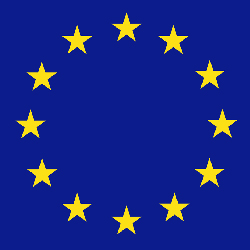Tax
EU Frowns On Italy, Isle of Man Tax Practices

The UK Crown Dependency and an EU member state have drawn fire from the European Commission over tax breaks involving purchases of jets and yachts.
The European Union is taking action against Italy – a member
state – and the Isle of Man (a British Crown Dependency but not
an EU member) over of what it claims are illegal tax breaks given
to high net worth individuals over purchases of private jets and
yachts.
The European
Commission has written to the UK government complaining about
what are allegedly “abusive VAT practices” in the Isle of Man.
The Commission said that it intends to shut a tax loophole. The
IoM falls in the EU’s tax net because of its ties to the UK which
is, at least for the moment, still in the EU.
“The Commission believes that the UK has not taken sufficient
action against abusive VAT practices in the Isle of Man with
regard to the supplies and leasing of aircraft,” the organisation
said in a statement late last week.
Italy and the UK have two months to respond to the Commission’s
complaints about the jurisdictions’ VAT treatment of yachts and
aircraft, respectively. It warned that if the countries do not
act within those two months, the Commission may send a reasoned
opinion to their authorities. In Italy’s case, the matter could
go before the EU’s European Court of Justice, it said.
The case sheds light on how EU member states’ freedom to set
their own tax laws conflict with notions of “harmful tax
competition”. As the UK moves towards independence from the EU, a
question remains of how much freedom of action the country will
have if a Brexit deal requires the UK to continue respecting
certain European rules.
Paradise Papers leak
The IoM’s practices emerged through publication of the Paradise
Papers leak of data from Appleby, the offshore law
firm, which were published by the International Consortium of
Investigative Journalists, a Washington DC-based group.
The Commission claims that the tax avoidance schemes in the IoM,
used by figures such as F1 motor racing driver Lewis Hamilton,
violate EU law. (Hamilton paid no VAT when importing his red
£16.5 million jet plane. According to an account by the
Guardian, Hamilton said at the time that he had
instructed a senior lawyer to check his arrangements and he had
been told that they were lawful.)
In Italy, meanwhile, the Commission said that8/ it has given
formal notice to the EU state for not levying the correct amount
of VAT on the leasing of yachts.
"It's simply not fair that some individuals and companies can get
away with not paying the correct amount of VAT on products like
yachts and aircraft. Favourable tax treatment for private boats
and aircraft is clearly at odds with our commonly agreed tax
rules and heavily distorts competition in the maritime and
aviation sectors. With this in mind, the Commission is taking
action to clamp down on rules that try to circumvent EU law in
these areas,” Pierre Moscovici, Commissioner for Economic and
Financial Affairs, Taxation and Customs Union, said.
Italy is guilty, the EU said, of several breaches of its
rules.
“Current EU VAT rules allow member states not to tax services
when the effective use and enjoyment of the product is outside
the EU. But the rules do not allow for a general flat-rate
reduction without proof of where the service is actually used.
Italy has established VAT guidelines according to which the
larger the boat is, the less the lease is estimated to take place
in EU waters. As a consequence, such rules greatly reduces the
applicable VAT rate,” the Commission said.
“Excise duty rules for fuel in motor boats in Italy. Current EU
excise duty rules allow member states not to tax fuel used by a
navigation company for commercial purposes, i.e. the sale of sea
navigation services. However, an exemption should only apply if
the person leasing the boat sells such services to others. In
breach of EU rules, Italy allows chartered pleasure crafts such
as yachts to qualify as 'commercial' even when being enjoyed for
personal use, which may allow them to benefit from excise duty
exemption on fuel used to power its engines,” it continued.